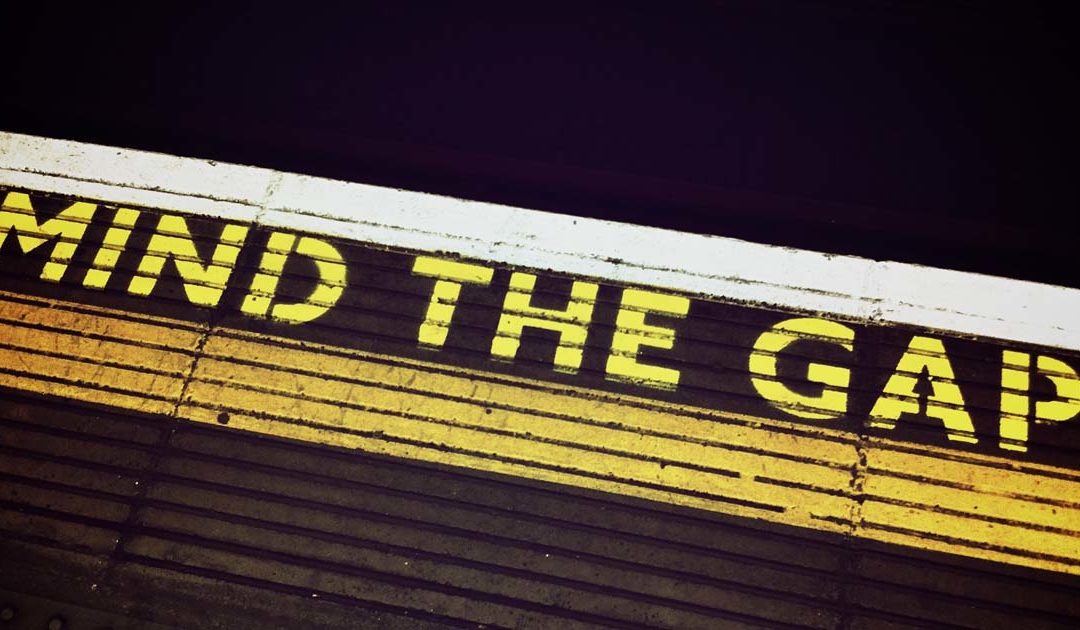That’s right, I went there. I’m doing this now, and I probably already lost most of you after the title. I’ve been sitting on these thoughts for a while and decided it’s time to get them out.
It is impolite and improper to talk about politics, right? That’s what we’re reminded before every Thanksgiving dinner and office Christmas party. Many avoid political topics on social media or at social gatherings because they fear they might tarnish their professional reputation or make a peer feel estranged. When we don’t steer clear, we preface our statements with “I don’t want to get political, but…” while reading the room as a safeguard. This is kind of like how my mom says “Now don’t get mad, but…” before dredging up her concerns that I’ve not given her grandkids yet and how it’s probably because I like the video games.
First, let’s talk about the history of discussing politics. Hill’s Manual of Social and Business Forms, published in 1888, says, we should “…not discuss politics or religion in general company. You probably would not convert your opponent, and he will not convert you. To discuss those topics is to arouse feeling without any good result.” This statement is sandwiched between a recommendation to not namedrop the distinguished socialites you happen to know and a suggestion to not be an abusive dick when meeting someone new. Here’s a link to it for your enjoyment.
I want to accost Hill’s ageless adage, and not because he’s wrong. No, come on guys, you know me and why I do things. I’m doing this because everybody is wrong.
I’m going to examine a few problems that lead up to why talking about politics is so taboo, and why we need to knuckle down, put on our big boy pants, and start talking.
Oh yeah, and I’ll explain why you are a fucking idiot if you think talking politics should be taboo. Sit tight, you’ll like it, Mary Sue.
Problem Number One; Politics Polarizes Us
For those of you who are around my age or younger, you are going to feel like the United States has never been so polarized and divided. For your perspective, you are basically correct. Studies have shown, although there are always going to be disagreements across the political spectrum, that we’ve seen a much wider gap between the right and the left compared to the last three or four decades. If you didn’t grow up in the 1960s or you were too young or distracted by Beatlemania, then our current situation will feel like two completely opposite sides with two completely opposite views the likes you’ve never seen. Regardless if you totally ignore history or not, the distinctions between conservatives and liberals are increasingly intense.
I’m going to get into why later. The takeaway here is the stigma that talking about politics can put you into one camp over the other, and possibly rip you from the good favors of those who are on the outside. Walking into a room and proudly stating, “You know what I love? Abortions! God damn, are abortions the best!” will likely have negative effects with your more conservative constituents. Okay that was an extreme example, but let me have it. I’ve been pretty good so far in this post.
Unfortunately, the widening gap between the various states of leftness, rightness, and centrists make it harder to reach a common ground, or even make logical statements on some issues. Listen to the chants of the left verses right when a psychopath shoots up a high school; the right immediately goes into a “it wasn’t the gun that did the shooting,” chorus while the left harmonizes with a “let’s fix this gun issue.” response. Wait, did that feel backwards? It’s not. I’ll cover that in a bit.
So why are we so polarized? There’s a twisted machine behind all this that is driving us there, and that machine depends on Identity-Based Ideologies, which is my next problem.
Problem Number Two; Identity-Based Ideologies are for Losers
The problem with politics over the last 20 or 30 years is that the real issues are no longer “the issues.” It turns out that an individual who affiliates as a Democrat or a Republican is more likely to harbor negative feelings towards someone of the opposite party, just because. In a 2012 study done by Stanford University political science professor Shanto Iyengar, there’s a trend of resentment between political parties that stems from negative political campaigning. University of Maryland profession Lilliana Mason takes this idea even further, stating that the divide is widened because of identity-based ideology.
Identity-based ideology, compared to issue-based ideology, is where your standing depends on the affiliation of your party as opposed to your personal standing on a particular issue. This separates Democrats and Republicans socially, and helps strengthen the division between the two parties. It’s increasingly difficult to agree on any issue because the point of any issue is to come out on top of the other team. Fewer and fewer are the liberals who also feel that abortions are morally wrong, or the conservatives who happen to think we should allocate money to educate less fortunate children. You joined a side, you are to wave that flag loyally. This increases the polarization from my first problem, and pits us against each other in everyday society.
Gone are the days where two individuals from opposite sides of the political fence feel the same way about something. It’s us verses them. “If we have any common ground, what kind of liberal/conservative would that make me? I can’t agree with a stupid fascist/libtard.”
Identity-based ideology causes the sides to become ineffective at working together. All they can resort to are potshots and quips. Of course, when your identity is based on a massive community whose entire existence is to market itself into power, you are going to be inundated with finely crafted ammunition to go up against the other team. Let’s talk about that.
Problem Number Three; Memes
Your political affiliation is armed to the teeth by a meme factory. For every issue, your party is pumping out hackneyed rebuttals for every argument the other side might have. They are arming you and your like-minded peers with biased misinformation. It spreads garbage quotes and catch-phrases, and pits one side over the other. Worst of all, a large percentage of these curated sharables are generated for the purpose to disrupt American politics.
It was discovered that Russians were using Facebook and other social media sites to attack American candidates, sway public opinion on issues, and further polarize individuals. Russian Facebook Groups like Don’t Shoot took aim at police brutality while Being Patriotic pushed the idea that Black Lives Matter activists were killing police officers.
Many of these silly jokes, memes, and sharable social media posts are harmless on their own until you think of the grand scale at which they are being passed around and used to spread confusion. They play specifically well with the first two problems because they are easy and plentiful. You don’t need to be informed when you can just hit Like and Share on something that your friend endorsed first. When someone from the other side rebuttals or offers their side, sure enough there is already a premade, chewable response in the hopper that is just a couple of keystrokes away. It’s turning everyone into insufferable trolls (unlike the good kind of trolling, which is my signature move). It’s an energy-efficient propaganda engine that perpetuates itself in a way we’ve never seen in the history of our species.
It leaves both sides frustrated with the other – a liberal’s bank of common knowledge is different than that of a conservative’s, and both sides are equipped with the jabs that turn logical conversation into a flame war.
I am not saying that propaganda is anything new; humans have always been ridiculously susceptible to marketing. I’m not saying that silly jokes and memes about the ridiculousness of a certain side of an issue are inherently a problem. The problem is when you live in a polarized bubble, and your individual identity is clung tight to being right or left, and with the way society is going right now, that’s how it is, baby.
Hey, also, as a personal message to both sides, learn how to laugh when your side is ridiculous, and learn how unclever and droll your propaganda is. Leave the funny stuff to the comedians, like me.
Introducing Talking to Other Humans Face-to-Face
*cue infomercial voice*
Are you tired of polarization between the right and left in America? You should try talking to other humans face-to-face™! Talking to other humans face-to-face™ is a revolutionary new product that makes you an individual and not just a boring, tired cog in the meme engine of your political affiliation! You can use talking to other humans face-to-face™ in school, at the store, in line at the bank, at the Friday-night sock hop, and even in the office. It’s amazing how portable this versatile little system is!
I spent my whole summer sharing memes about how crooked Hillary is and how bad her emails are to my grandchildren on social media. Thanks to talking to other humans face-to-face™, I now realize that the election was over back in 2016 and that I think my son’s choice to be an environmental scientist is stemmed from his passion to make the world a better place, and not part of the liberal agenda to make Spanish the official language of the United States! Thanks talking to other humans face-to-face™!
~Trustworthy old grandmother
That’s right! talking to other humans face-to-face™ is so easy that anyone can use it!
I was a little nervous that talking to other humans face-to-face™ would bring out the worst in people, but it was surprising how good it felt to agree with everyone around me that sexual assault is frowned upon! I honestly had no idea that more than half the country thought this way!
~Tom from the billing department
Talking to other humans face-to-face™ works like this. First, find another person to talk to in actual human meat space. Approach that person and offer a friendly greeting. Small talk helps too. Become friends and share common interests. Laugh about how bad all of the DC Universe movies have been. Then, use our revolutionary, patented formula to politely bring up an issue you are passionate about. Once you are finished explaining your feelings, allow the other person to share their opinions. Remember, talking to other humans face-to-face™ is most effective when you empathically listen and avoid yelling or insulting the person and their values.
Talking to other humans face-to-face™ is fun!
~Six smiling children of various walks of life, in creepy unison
Talking to other humans face-to-face™ is not sold in any stores. Currently we don’t offer shipping to Canada. Actual product may vary. Product does not inherently make someone a dick. If you feel that the product has made you a dick, please stop using the product immediately and consult a physician. You might just be a dick.
Oh yeah, and if you think talking about politics is inappropriate, you are an idiot. I originally wanted to show the etymology of the term idiot and how it likely originated from the idea that in Ancient Greece an idiot was a person who was too ignorant to participate civically. After finishing my post, I learned that this is not entirely accurate, so I just called you an idiot because I didn’t fact check enough. I’m a crook and a fraud and a hack, but I guess you are an idiot for reading this far down so I guess I win?




